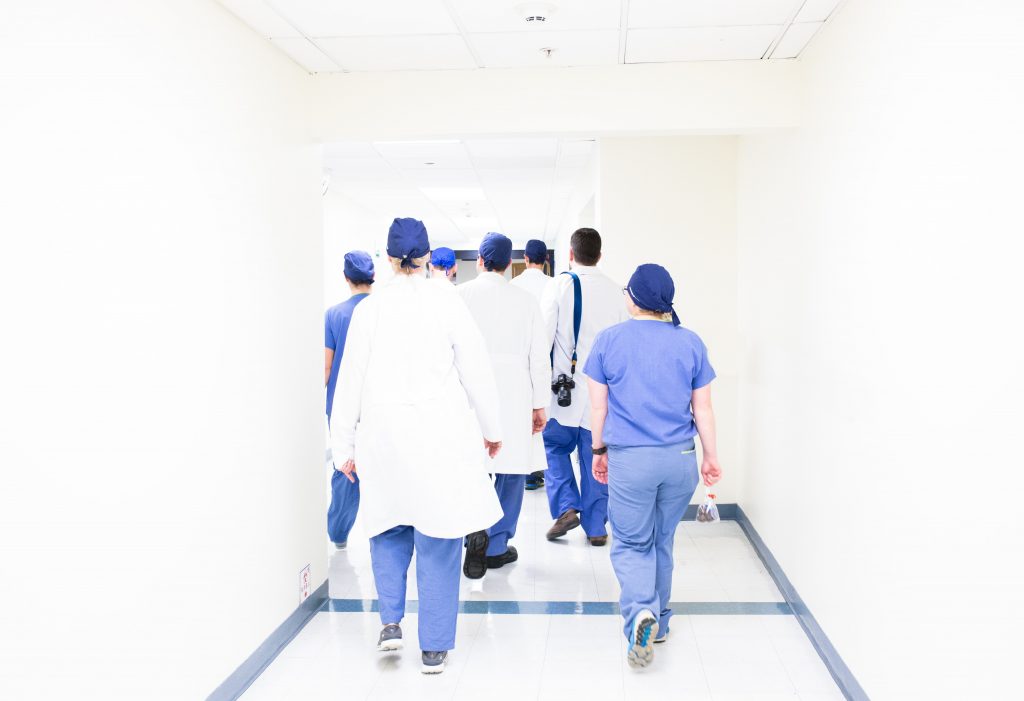Adam Johannes explains the changes to this year’s International Workers Memorial Day in light of the pandemic
If I die, I don’t want to be remembered as a hero. I want my death to make you angry too. I want you to politicise my death.
I want you to use it as fuel to demand change in this industry, to demand protection, living wages, and safe working conditions for nurses and all workers. Use my death to mobilise others. Use my name at the bargaining table. Use my name to shame those who have profited or failed to act, leaving us to clean up the mess.
Don’t say ‘heaven has gained an angel’. Tell them negligence and greed has murdered a person for choosing a career dedicated to compassion and service.
Emily Pierskalla, Nurse, Minnesota, USA, 13 April 2020
Today is International Workers Memorial Day, a day of action for workers killed, disabled, injured or made unwell by their work. The traditional slogan is ‘Remember the dead: fight for the living’.
This year people are mobilising under an additional slogan ‘Stop the Pandemic at Work’ calling for workers and society to be protected from the virus.
UK trade unions have called a nationwide one minute’s silence at 11 am to remember and honour health, care and other frontline workers who have died from Covid-19.
Some are turning this into a day of action for Personal Protective Equipment (PPE), testing and shutting down non-essential workplaces.
At two of London’s biggest hospitals, Guys and St Thomas’s hospitals, workers have agreed with managers for the entire workforce to walk out to observe the minute’s silence – but they will stay out for another thirty minutes for a socially distanced protest: for the PPE and proper testing they need to keep themselves and patients safe. There will be emergency cover, but of course many staff may need to go back in immediately.
Elsewhere key workers have arranged union meetings outside to observe the minute’s silence, to bring banners, lay flowers, and read names of fellow workers who have died.
Many people are taking a variety of other actions, at work, at home and in their neighbourhoods:
- Some intend to walkout of their workplace and hold the minute’s silence outside, staying out for ten, fifteen, thirty minutes or longer to protest, with social distancing, for PPE.
- Workers or neighbours are taking individual or group photos – with appropriate social distancing – to hold up posters calling for PPE and testing, to share on social media.
- In Bristol a whole street has changed their window posters supporting the NHS into posters demanding PPE for NHS workers.
- Visits to nearby hospitals, care homes, bus despots, postal sorting offices or any other workplace that is open, where workers need protection, to hold signs calling for PPE to support key workers.
A recent poll found that here in Wales over 80% of workers did not feel they had adequate PPE and over 98% had not been tested.
Shavanah Taj, Wales TUC leader has told frontline workers that they must demand PPE/Social Distancing and have every right not to work if this is not provided:
Personal message to frontline NHS/Care & Key Workers. Demand PPE/Social Distancing. If not provided and you feel unsafe you have every right not to work until appropriate adjustments are made, so as to allow you to work safely. If you are unsure it is always best to speak to your union first. No worker should risk their lives. We need you safe and well for your own families and loved ones. You must not be put at risk, as you serve and protect us.
Wales TUC have a hotline where workers can whistleblow over health and safety.
Reel News have produced a 1 minute film of how legally to shut down non-essential workplaces over health and safety during the pandemic.
The right to work without risking health or life has been a right hard won over centuries. In Britain, the Health and Safety at Work Act 1974 came out of the mass upsurge in union militancy that brought down Edward Heath’s government. It was the legal high-water mark of a huge workers’ rebellion that shook Britain in the 1970s.
We are now entering a period of economic, social and political crisis of unimaginable proportions. It is almost certain that world leaders will seek to impose huge austerity packages to pay for profits lost during the lockdown.
But something else is happening.
Millions now see that the most essential people in society are not bankers, bosses and billionaires, but ‘key workers’.
The NHS and public services are now the institutions that unite us. Every week now in the UK, groups of often low paid workers are winning health and safety during the pandemic by breaking Tory anti-union laws and calling strikes in the old fashioned way: a show of hands followed by walkout.
A People’s Assembly, we are encouraging the public to start conversations now with workplace colleagues, friends, family and neighbours about what all of us can do to amplify workers’ calls for PPE, for testing, for health and safety.
Nobody should have to choose between self-isolating and being able to afford to pay rent, bills and food on the table.
All articles published on the welsh agenda are subject to IWA’s disclaimer.





